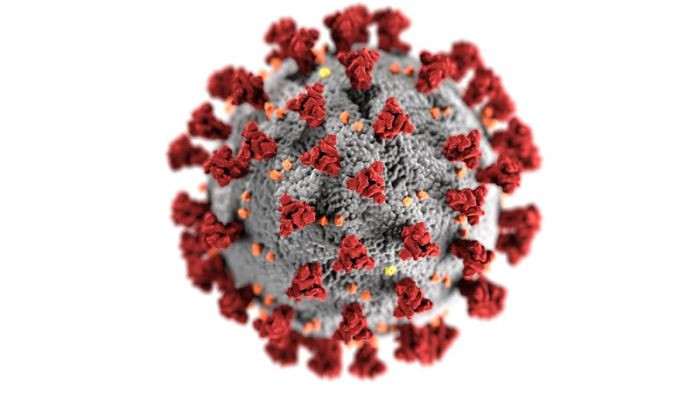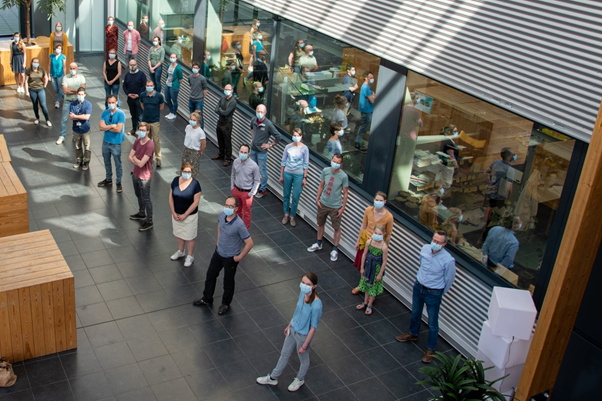Towards a COVID-19 Drug
Llama antibodies to COVID-19?
The COVID-19 outbreak in January 2020 is also the start of an intensive search for antibodies against the virus. Prof. Xavier Saelens, Prof. Nico Callewaert, and their teams from the VIB-UGent Center for Medical Biotechnology bring their knowledge, years of expertise in the development of virus inhibitors, and a small antibody to the table.

In 2016, the researchers had already isolated and characterized a small llama antibody that was directed against SARS-CoV-1, the virus responsible for the SARS epidemic in 2003, and MERS-CoV, which has appeared regularly since 2012. They decided to do everything they could to investigate the efficiency of their antibody against the new coronavirus SARS-CoV-2.
The pandemic is rapidly bringing together key players, each with a specific contribution to drug development. For example, the project received immediate financial support from Flemish Minister of Science and Innovation Hilde Crevits to finance the first development steps.
This animation explains the protective mechanism of the COVID-19 antibody.

Together with international teams, the VIB-UGent researchers demonstrate in February 2020 that the llama antibody binds to a part of the spike protein that the corona virus uses to enter human cells. Their research is published in the journal Cell.
In March 2020, the researchers demonstrate that the llama antibody can render a laboratory variant of the virus harmless. This result, from a collaboration with American and KU Leuven teams, is a major step forward in the development of a potential drug against COVID-19.
Llama Winter: hero in the fight against COVID-19
The research is picked up worldwide. The press attention is making Llama Winter, whose antibodies were used in the study, an international celebrity. She even hits CNN.
Later in the year, llama Winter got a new home at Koen Vanmechelen's LABIOMISTA.

From llama to patient: The story of ExeVir Bio
Testing the effect on patients is the next step. To this end, VIB set up the company ExeVir Bio in July 2020, which raised 23 million euros to test the drug for safety and effectiveness in COVID-19 patients. UCB is responsible for the production of the medicine. The aim is to make the drug available in the course of 2021.
Read an interview with the people behind this masterpiece here.
In November 2020, ExeVir Bio strengthened its board with the appointment of Michel Kazatchkine and Stef Heylen, experienced hands in the field of infectious diseases and pharmaceutical development.
Another milestone in March 2021. ExeVir raised another 19 million euros and acquires financial strength to start clinical trials with the COVID-19 antibodies.
Research does not stand still
In September 2020, the VIB researchers receive international recognition for their pioneering work. With the MolecularCloud Distinguished Research Award 2020, they receive a prize that is awarded to research achievements with a significant impact on the study of COVID-19 and the SARS-CoV-2 virus.
In early 2021, the more contagious 'British' and 'South African' variants of the virus emerge. At that time, the vaccination campaigns are slow to get started and studies are started to investigate the effect of the vaccines as protection against these variants.
The VIB researchers also start tests in Ghent to study the effectiveness of 'their' COVID-19 antibodies against the new variants. Successfully. The antibodies protect laboratory animals against infection by the corona virus. They bind with the spike proteins, the spines, of the virus. They publish this news in a preprint publication.
New hope thanks to llama antibodies
Antibodies developed by other companies appear to be less effective against the new corona variants. This makes the VIB antibody one of the most future-proof antibody therapies against COVID-19 currently in development.
The VIB spin-off ExeVir Bio is ready to test this treatment in hospital patients shortly.
Jérôme Van Biervliet, general director of VIB: “This work towards a COVID-19 drug can be seen as a blueprint for the development of antibodies for subsequent pandemics. The progress these VIB teams have made in just 12 months is incredible. The activities of the past year can serve as reference points to create a common vision of what is needed in a future pandemic response.”
In July 2021, ExeVir announced that it has generated data on its COVID-19 antibody that demonstrate in vitro neutralization activity against the gamma and delta variants of SARS-CoV-2.
In the clinic
ExeVir announces the start of the Phase 1 clinical trial in August 2021. The randomized, double-blinded, single-center, placebo-controlled Phase I clinical study will evaluate the safety profile and pharmacokinetics of the antibody administered as an IV infusion in healthy subjects. The study will sequentially test three ascending doses of intravenously administered antibody in a maximum of three groups of 10 healthy adult subjects. One month later, the VIB spin-off started the Phase 1b/2 global clinical study, treating hospitalized COVID-19 patients with the antibody. The study is designed to rapidly treat patients upon admission to hospital with the aim to curtail the infection and allow a faster recovery and avoid progression to more severe disease.
